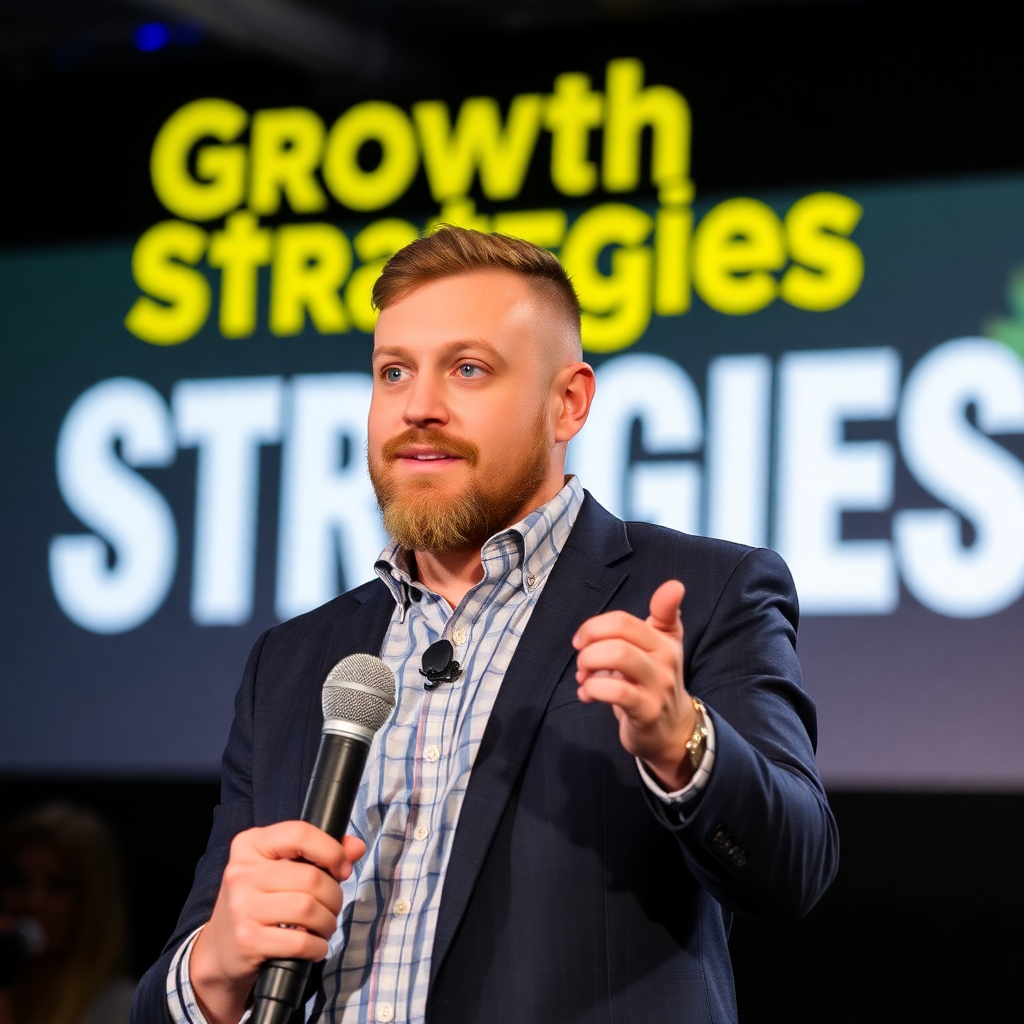If you’ve ever felt like you’re running flat out yet the finish line keeps moving, you’re not alone. I’m Nathan Baws – 43 years of building, busting, and rebuilding businesses, from health shops that started in a mate’s garage to staring down the Sharks on national TV. I’ve lost everything, made it back, and learned the hard way that growth doesn’t come from grinding harder – it comes from thinking completely differently.
These aren’t the recycled tips you see on every LinkedIn post. These are the 10 surprising, battle-scarred growth strategies I’ve used myself and now share as one of Australia’s most booked corporate speakers. Let’s crack in.
1. Guerrilla Marketing – Make Noise, Not Spend Money
Big budgets are for corporations. You just need big balls.
When I opened my first health store with $11k to my name, I hired a mate to dress as a giant carrot and dance outside the local shopping centre. People laughed, filmed it, shared it – we had queues out the door for weeks. Cost? Two slabs and a carrot costume.
Another time I parked a branded ice-bath van outside a rival gym with a sign “Free 3-minute ice bath – prove you’re tougher than Nathan.” We collected 400 leads in a weekend. Zero ad spend.
Lesson: creativity beats cash every single day.
2. Turn Your Brand Into a Story People Actually Care About
People don’t buy products – they buy transformations and the bloke behind them.
My health brand isn’t about supplements; it’s about the stubborn bastard who refused to stay broken after losing everything. That story is on every bottle, every post, every talk. When I’m booked as a keynote speaker Perth loves, I don’t sell protein powder – I sell second chances.
Your story is your unfair advantage. Tell it raw, tell it loud, tell it often.
3. Social Media – Stop Posting, Start Starting Conversations
Most businesses treat socials like a billboard. I treat it like the pub.
Ask questions, run ugly polls, share the failures, go live from the warehouse floor at 9 pm when you’re still packing orders. One “What’s the dumbest business mistake you’ve made?” post got 1,400 comments and 87 direct messages from people who became customers.
Authenticity + curiosity = rocket fuel.
4. Network Like a Giver, Not a Taker
I never walk into a room thinking “Who can help me?” I walk in thinking “Who can I help today?”
One coffee with a struggling café owner turned into a partnership that put my products in 14 new locations. Another random chat at a Perth networking event landed me a mentor who saved me from a $200k mistake.
Give first, give ridiculously, and the universe pays compound interest.
5. Embrace Failure Like an Old Mate
Every successful entrepreneur has a trail of dead businesses behind them.
Shark Tank? No deal – but the exposure tripled online sales in 30 days. A supplement line that flopped spectacularly taught me more about labelling laws than any course ever could.
Fail fast, fail cheap, fail forward. The audience loves the comeback story more than the overnight success myth anyway.
6. Build Mental Toughness That Would Scare a Commando
Some days the bank balance looks sick, suppliers ghost you, and a key staff member quits. That’s Tuesday.
My toolkit:
- 5-minute cold showers (started after that world-record ice bath)
- Daily “three wins” journaling
- A mentor on speed dial for reality checks
Mental toughness isn’t a gift – it’s a muscle. Train it or get crushed.
7. Launch Ugly MVPs and Let Customers Shape the Product
Perfection is the enemy of progress.
I’ve launched supplements with handwritten labels, pop-up shops that looked like garage sales, and online courses filmed on an iPhone. Customers told me what sucked, what they loved, and what they’d pay double for. Version 2.0 made money. Version 1.0 taught me everything.
Done is better than perfect.
8. Form Strategic Partnerships That Feel Like Cheat Codes
Why fight alone when you can team up and dominate?
One cross-promotion with a popular Perth gym put my brand in front of 8,000 new eyeballs for the cost of a few free tubs of protein. Another partnership with a corporate wellness company turned into recurring six-figure revenue.
Find businesses your customers already love – then make magic together.
9. Delegate Like Your Life Depends on It (Because Growth Does)
Trying to do everything yourself is the fastest way to stay small.
I used to pack every box, answer every email, and clean the shop. Then I hired people smarter than me in those areas and suddenly had time to triple the business. Let go of the $20/hour tasks so you can focus on the $2,000/hour ones.
10. Obsess Over Your Customers Like They’re Family
Happy customers are your marketing department, sales team, and investors rolled into one.
One customer complained our tubs were hard to open – we redesigned them in two weeks and sent her a year’s supply free. She posted about it, tagged us, and brought in 67 new orders.
Under-promise and over-deliver is old advice. I say: over-deliver until it hurts, then do it again.
The Bottom Line – Growth Isn’t About Money, It’s About Mindset and Moves
I’ve built businesses with nothing but hustle and a borrowed laptop. I’ve also lost everything and started again at 40. What I’ve learned is that the strategies above work whether you’ve got $500 or $5 million.
As a corporate speaker Perth and the rest of Australia keep calling back, I’ve seen these exact moves turn struggling startups into seven-figure success stories and help corporate teams smash targets they thought were impossible.
You don’t need another course, another guru, or another million dollars. You need to start thinking and acting differently – today.
Detailed FAQs
- How do I start guerrilla marketing with no budget? Look around your local area today – where do your ideal customers hang out? One viral stunt (costume, flash mob, cheeky sign) beats 100 boring posts.
- What if I don’t have an exciting brand story? Wrong. Every business owner has overcome something. Dig into why you started, the sacrifices, the near-misses – that’s your gold.
- How do I grow social media without looking salesy? Share 80 % value (tips, behind-the-scenes, failures) and only 20 % offers. People follow humans, not advertisements.
- How do I take calculated risks without losing everything? Never risk money you can’t afford to lose. Start with small tests – $500 experiments before $50k launches.
- What’s the fastest way to scale on a shoestring? MVP + strategic partnerships + obsessed customer service. Get something basic out, team up with bigger players, and overdeliver like crazy.



